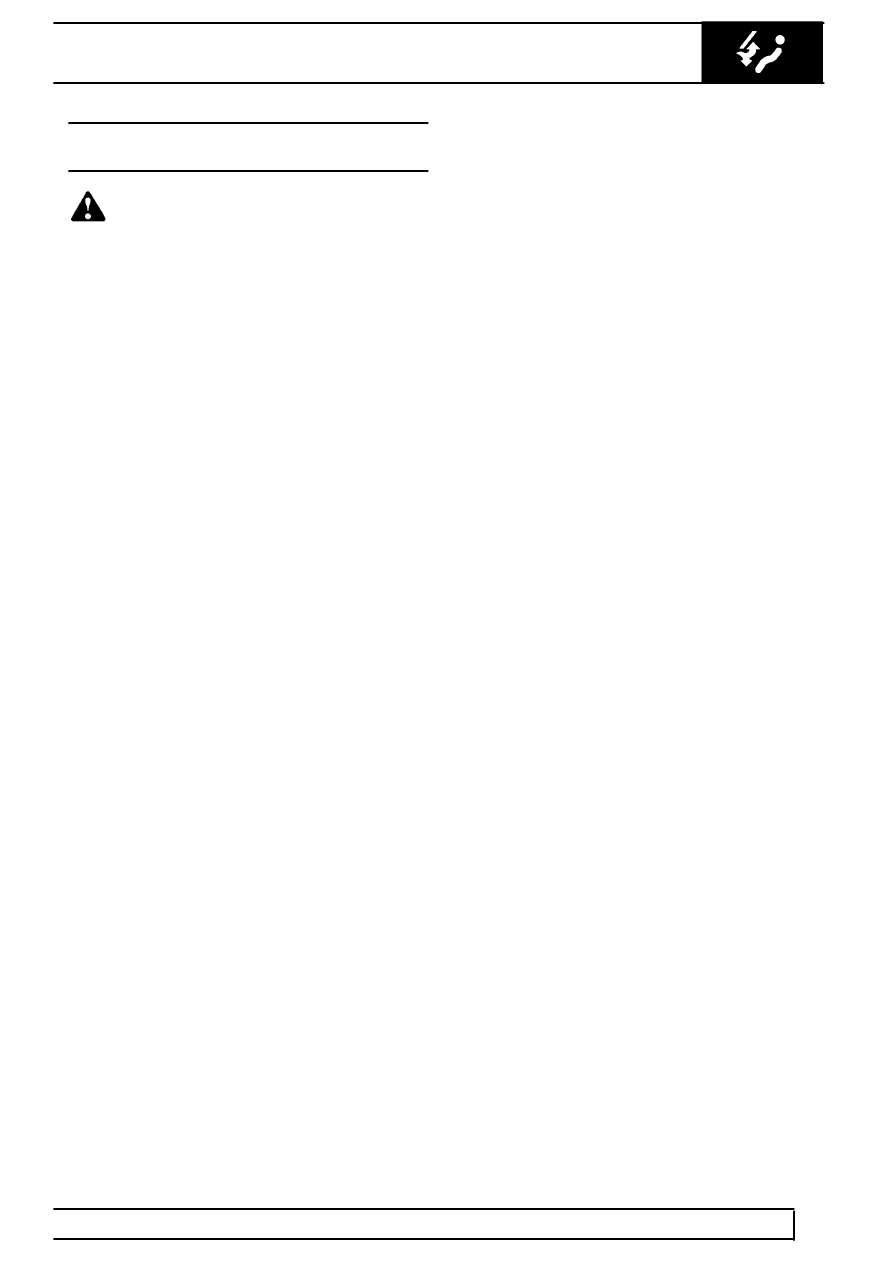Range Rover Classic

AIR CONDITIONING
1
REPAIR
PRECAUTIONS IN HANDLING REFRIGERANT
LINES
WARNING: Wear eye and hand protection
when disconnecting components
containing refrigerant. Plug all exposed
connections immediately.
1. When disconnecting any hose or pipe
connection the system must be discharged of all
pressure. Proceed cautiously, regardless of
gauge readings. Open connections slowly,
keeping hands and face well clear, so that no
injury occurs if there is liquid in the line. If
pressure is noticed, allow it to bleed off slowly.
2. Lines, flexible end connections and components
must be capped immediately they are opened to
prevent the entrance of moisture and dirt.
3. Any dirt or grease on fittings must be wiped off
with a clean alcohol dampened cloth. Do not use
chlorinated solvents such as trichloroethylene. If
dirt, grease or moisture cannot be removed from
inside the hoses, they must be replaced with
new hoses.
4. All replacement components and flexible end
connections must be sealed, and only opened
immediately prior to making the connection.
5. Ensure the components are at room temperature
before uncapping, to prevent condensation of
moisture from the air that enters.
6. Components must not remain uncapped for
longer than fifteen minutes. In the event of delay,
the caps must be fitted.
7. Receiver/driers must never be left uncapped as
they contain Silica Gel crystals which will absorb
moisture from the atmosphere. A receiver/ drier
left uncapped must not be used, fit a new unit.
8. The compressor shaft must not be rotated until
the system is entirely assembled and contains a
charge of refrigerant.
9. A new compressor contains an initial charge of
of refrigerant oil. The compressor also contains a
holding charge of gas when received which
should be retained by leaving the seals in place
until the pipes are re-connected.
10. The receiver/drier should be the last component
connected to the system to ensure optimum
dehydration and maximum moisture protection of
the system.
11. All precautions must be taken to prevent
damage to fittings and connections. Slight
damage could cause a leak with th high
pressures used in the system.
12. Always use two wrenches of the correct size,
one on each fitting when releasing and
tightening refrigeration unions.
13. Joints and ’O’ rings should be coated with
refrigeration oil to aid correct seating. Fittings
which are not lubricated with refrigerant oil are
almost certain to leak.
14. All lines must be free of kinks. The efficiency of
the system is reduced by a single kink or
restriction.
15. Flexible hoses should not be bent to a radius
less than 90mm.
16. Flexible hoses should not be within 100mm of
the exhaust manifold.
17. Completed assemblies must be checked for
refrigeration lines touching metal panels. Any
direct contact of lines and panels transmits noise
and must be eliminated.
